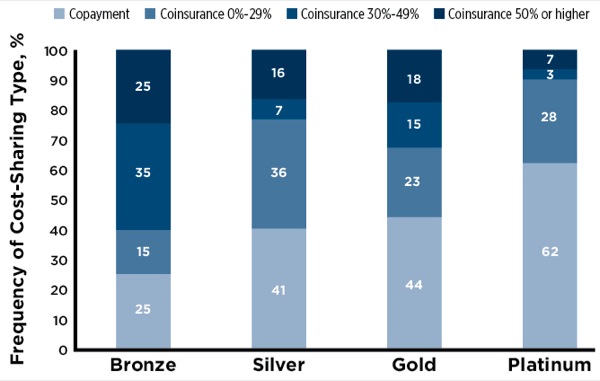by Gabriel Levitt, Vice President, PharmacyChecker.com and Sam Werbalowsky, Pharmacychecker.com | Aug 1, 2014 | Drug Prices, Pharmaceutical Industry
 We wanted to take a break from talking about prescription savings, online pharmacy, big Pharma this, the FDA that, personal drug importation, etc. You know how strongly we feel about your right to find medications you need at affordable prices. We’ll take this time to remind you about the problem of overprescribing in America. In other words, millions of Americans may be taking medications that they don’t even need! America’s crazy spending on prescription drugs – which is the highest in the world – is in part due to high prices, but it’s also partly due to patients, health plans, and government buying medication that is not even needed.
We wanted to take a break from talking about prescription savings, online pharmacy, big Pharma this, the FDA that, personal drug importation, etc. You know how strongly we feel about your right to find medications you need at affordable prices. We’ll take this time to remind you about the problem of overprescribing in America. In other words, millions of Americans may be taking medications that they don’t even need! America’s crazy spending on prescription drugs – which is the highest in the world – is in part due to high prices, but it’s also partly due to patients, health plans, and government buying medication that is not even needed.
The satirist website The Onion just published a piece that pokes fun at the problem of overprescribing and we thought we’d keep it light this Friday afternoon. They cover GlaxoSmithKline’s “release” of Placidex – a drug used to treat people who just “feel sort of weird sometimes.” If you think you might need Placidex, or know someone who does, read more about it here. Of course, you can expect that if this were an actual drug, its price would be untenable, at least for Americans.
And if you are feeling less silly, here’s one more infographic on overprescribing in America.
Tagged with: Overprescribing, Placidex, The Onion
by Gabriel Levitt, Vice President, PharmacyChecker.com and Sam Werbalowsky, Pharmacychecker.com | Jun 20, 2014 | Generic drugs, Pharmaceutical Industry
Americans are used to finding low-cost generic medications about six months to a year after they’re approved by the FDA. Think Lipitor, Plavix and Lexapro, which are all priced about 80% lower as generics.
Unfortunately, patients who had been looking forward to newly-approved generic versions of Nexium, Diovan, or Valcyte will have to keep waiting as a knot of legal and regulatory guidelines delay their U.S. release. The FDA approved Indian drugmaker Ranbaxy’s generic versions of these meds but has banned the plants to be used for their production from exporting products to the U.S., due to findings of substandard manufacturing practices.
You’d think that another drug manufacturer could just make and market the drug, but the U.S. approval system doesn’t allow that. The FDA grants six months of exclusive marketing rights to the company that first gains approval for a generic drug. We wrote about this process two weeks ago in our blog post covering generic Celebrex. Even though Ranbaxy’s plants can’t export generic versions of Nexium, Diovan, and Valcyte to the U.S., it still retains marketing exclusivity in the U.S. market!
This is good news for brand name drug makers and bad news for consumers. Global sales for Nexium, Diovan, and Valcyte totaled $8 billion last year. Delays to generic Diovan have grossed Swedish drugmaker Novartis $100 million a month. Cash-paying Americans, as usual, are hurt most by these shenanigans as they continue to pay high prices for brand-name medication. Taxpayers should also be unhappy, since they are footing the bill for these brand name drugs purchased through programs like Medicare and Medicaid.
There is, however, a bit of good news on the horizon – the European Medicines Agency, an Agency under the European Union that evaluates medicinal products (like the FDA), will reinstate the good manufacturing practices certificate for Ranbaxy’s Toansa plant, which was slated to produce generic Nexium and Diovan. Hopefully, these improvements are good enough for the FDA.
In the meantime, so you’re not held hostage to drug price insanity, you can find these brand medications internationally at amazing discounts. Feel free to compare their prices:
Diovan – save 70%
Valcyte – save 70%
Nexium – save 93%
Tagged with: Diovan, Nexium, Ranbaxy, Valcyte
by Gabriel Levitt, Vice President, PharmacyChecker.com and Sam Werbalowsky, Pharmacychecker.com | Jun 13, 2014 | Drug Importation, Drug Prices
A few weeks back we wrote about drug affordability problems related to high deductible Obamacare silver plans. A new report finds problems across all four tiers for patients requiring expensive specialty drugs. Many plans have co-insurance rather than a fixed co-pay for these medications, which means patients pay a percentage of a drug’s price rather than a flat fee. In fact, over 50% of bronze, silver, and gold plans studied had co-insurance rather than fixed co-pays for specialty drugs. That compares to only 38% for platinum plans.
According to Wellmark, “Specialty drugs are prescription medications that require special handling, administration or monitoring. These drugs are used to treat complex, chronic and often costly conditions, such as multiple sclerosis, rheumatoid arthritis, hepatitis C, and hemophilia.”

Pamela Morris, of Zitter Health Insights, said “A lot of times, if someone has coinsurance their first exposure to OOP [out of pocket costs] is at the pharmacy, where they may be unsure if they’ve met their deductible or if the costs are purely coinsurance.”
So how big could this price shock be? Let’s look at Tecfidera, a sample oral Multiple Sclerosis drug. The cash price is around $6,000 for 60 capsules of the 120 mg dose. Even if your co-insurance is 25%, that’s $1,500. You can purchase the same amount for $1,200 from an international online pharmacy. Still expensive, but a $300 savings is nothing to scoff at. And it’s likely that the co-pay would be even more than 25% in which case the international savings could be much higher.
Gleevec, a medication used to treat certain types of leukemia, is around $29,000 for 90 pills. That will cost you $7,500 if your co-insurance is only 25%. Using an international online pharmacy, you can purchase 90 pills of generic Gleevec for $725 from a Canadian pharmacy. This may even be cheaper than using Novartis’s patient assistance program for brand name Gleevec. The program has strict eligibility requirements but is worth pursuing if you believe you’re eligible.
We’re sorry to report that many specialty meds may not be safe to order from an international online pharmacy. Some might be extremely temperature sensitive, others are administered in a clinical setting, only sold by specialty pharmacies, and some aren’t even approved for sale outside the U.S. For some specialty drugs, the savings might not even be that great, as prices are high globally!
We promise to research all avenues of savings for these medications and report back to you soon…
Tagged with: Gleevec, Obamacare, specialty drugs, tecfidera
 We wanted to take a break from talking about prescription savings, online pharmacy, big Pharma this, the FDA that, personal drug importation, etc. You know how strongly we feel about your right to find medications you need at affordable prices. We’ll take this time to remind you about the problem of overprescribing in America. In other words, millions of Americans may be taking medications that they don’t even need! America’s crazy spending on prescription drugs – which is the highest in the world – is in part due to high prices, but it’s also partly due to patients, health plans, and government buying medication that is not even needed.
We wanted to take a break from talking about prescription savings, online pharmacy, big Pharma this, the FDA that, personal drug importation, etc. You know how strongly we feel about your right to find medications you need at affordable prices. We’ll take this time to remind you about the problem of overprescribing in America. In other words, millions of Americans may be taking medications that they don’t even need! America’s crazy spending on prescription drugs – which is the highest in the world – is in part due to high prices, but it’s also partly due to patients, health plans, and government buying medication that is not even needed.


